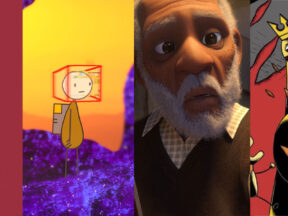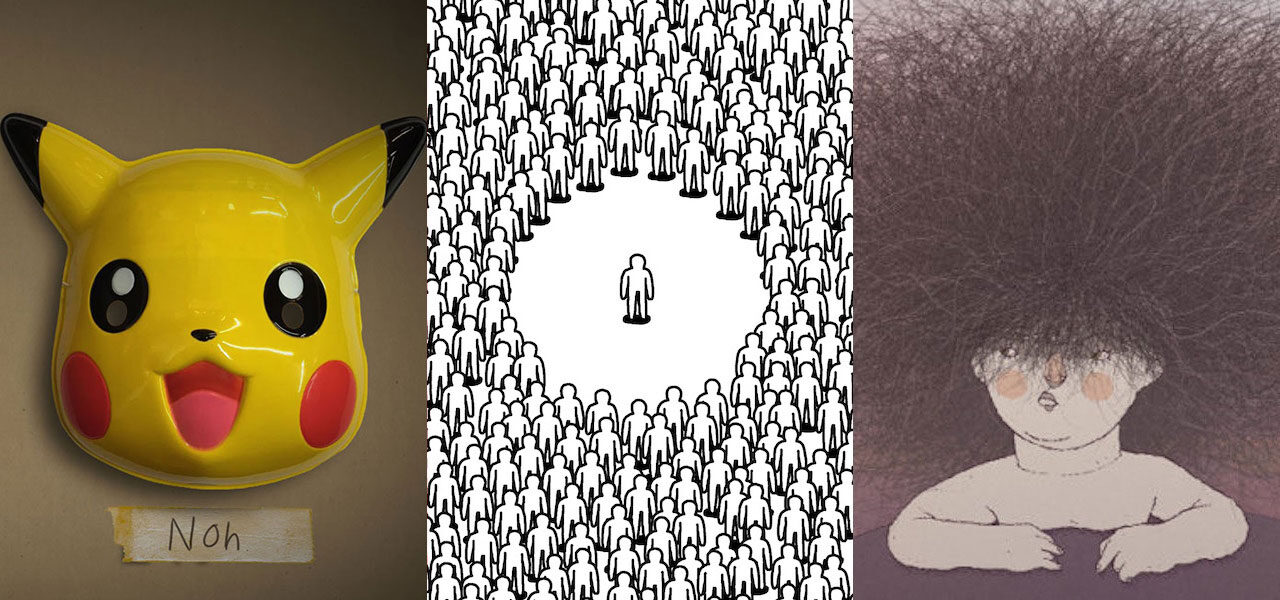
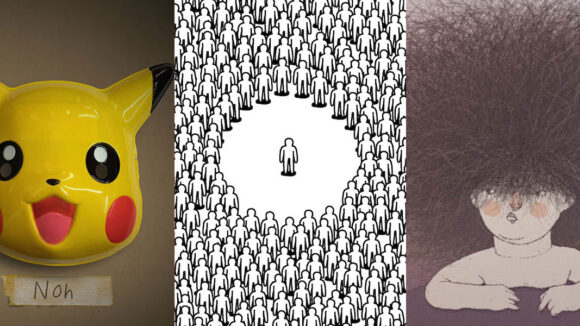
A Highly Subjective Look At Some Of This Year’s Lesser-Known Oscar Contenders
The pandemic didn’t really curb the quality or quantity of animated short films in 2020. Heck, the experience actually resonates with some of these films, like 4 North A and Beyond Noh. Maybe that’s just because this community has long been partial to a hermetic existence.
This year’s Oscar-qualifying shorts offer a mildly accurate overview of the international festival circuit during the last couple of years (some of them debuted in 2019). Since the big-studio films are going to get oodles of promotion and attention, let’s focus on a handful and a half of lesser-known films (in no particular order) that Academy voters should take some time to consider.
Altötting — Andreas Hykade (Germany/Canada/Portugal)
A young boy becomes obsessed with the Virgin Mary — but then he discovers her devastating secret. This story about love, faith, mortality, and shattered illusions fuses scenes of quiet, spacious minimalism with flourishes of opulent beauty to craft a timeless and emotional story of lost innocence.
Beyond Noh — Patrick Smith (U.S./Japan)
Boy, did Patrick Smith luck out with his timing. His stop-motion film about the long cultural history of masks was completed just as the world started battling over the use of protective face masks. It’s a playful, clever, and educational look at our long love of masks in art, sport, culture, defiance, and law enforcement.
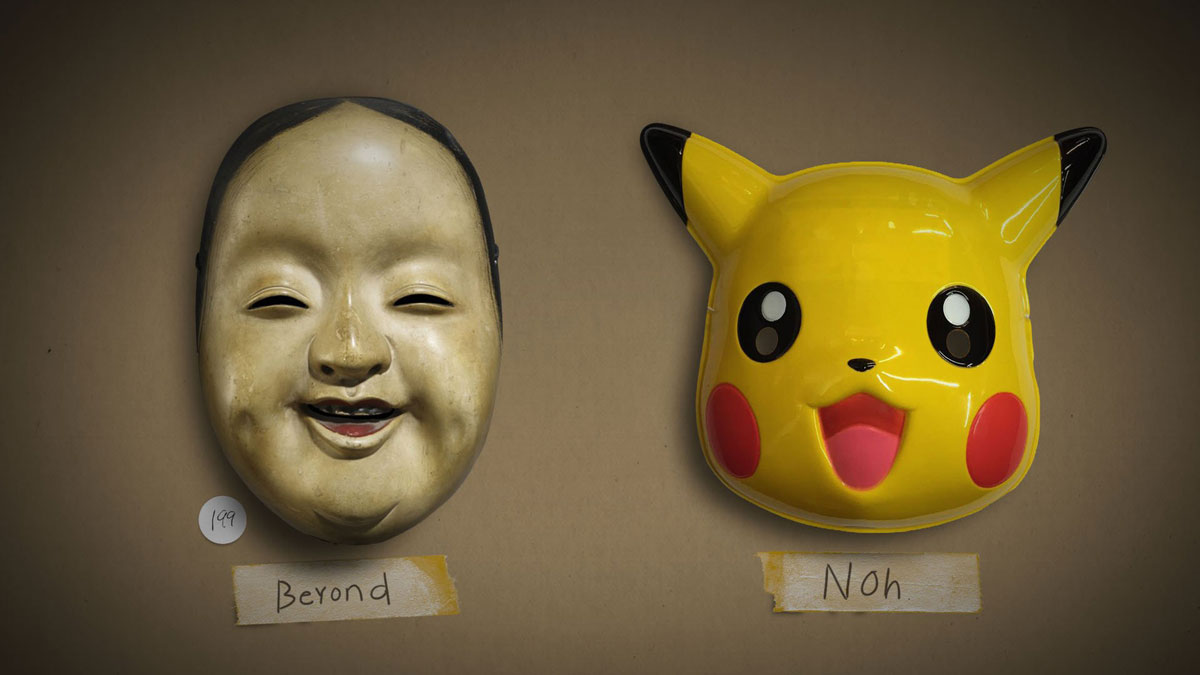
KKUM — Kangmin Kim (South Korea/U.S.)
One of the surprises of the year from an emerging animation master. This is a marvellously strange and funny autobiographical fantasy about the impact that Kim’s mom’s dreams have on his life. Told with an innovative visual flair (and inspired use of Styrofoam), the film takes what is at heart a loving, personal ode and sprinkles it with a stunning ethereal, celestial vibe.
I, Barnabé — Jean-François Lévesque (Canada)
Lévesque’s film tells the story of a priest who has lost his sense of purpose in a world, snubbing both church and spirituality. It is a technological wonder, combining stop motion, computer, drawings, and experimental techniques (the production involved pouring colored fluids into a tank of water), in addition to groundbreaking lighting.
Lévesque explores his character’s existential breakdown through his interactions with a menacing rooster who appears to him during a day of binge drinking. The director seems to ask us what is left in a world where people have forsaken faith and spirituality in favor of material satisfaction — certainly a question many are facing whilst in isolation and lockdown.
Naked — Kirill Khachaturov (Russia)
A young man gets superpowers he doesn’t want. That’s the premise of this unapologetically strange and eerie distortion of the daily tsunami of all things a superhero is. Khachaturov’s emaciated, fragile characters drift with hesitant fecklessness as they desperately seek things that are seemingly indefinable and out of reach: touch, intimacy, connection.
Naked had a remarkable run in 2020 as the only film in history (I believe) to win the best student film award at the major animation festivals Annecy, Zagreb, and Ottawa. That achievement alone is pretty remarkable, given that each festival had different jurists.
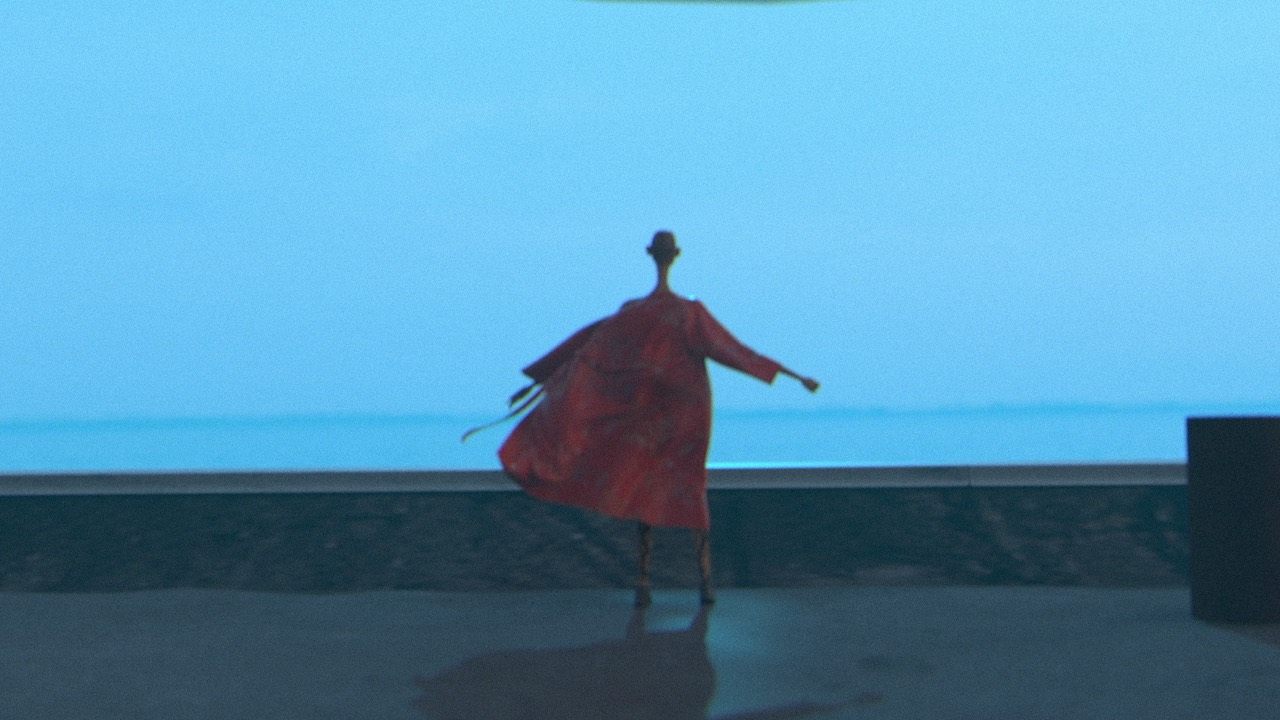
Dont Know What — Thomas Renoldner (Austria)
It’s a slapstick avant-garde film! Seriously! Impeccably timed, this upbeat ode to early animation comes at a good time: it’s a magical and laugh-out-loud poke at not just the creative process but also the struggles many of us face just getting through each day.
Just a Guy — Shoko Hara (Germany)
Hara’s polarizing animated documentary focuses on three women who fell under the spell of convicted killer, Richard Ramirez. After committing unspeakable acts against women and children, Ramirez developed an intense fan following among some women. One of those women was Japanese-born German animator Shoko Hara. After her experience, she decided to tell her story, but also dive deeper and speak to a couple of women who were intimate with Ramirez.
Visually and technically, Hara has created a bold, controversial, and uncomfortable viewing experience. Through a mix of stop motion and live-action archival footage, we learn how each of these women became entangled with Ramirez.
Opera — Erick Oh (South Korea/U.S.)
The history, foundations, and rhythms of humanity are explored through a massive multi-level pyramid-like mural painting. Simply, this is a stunning multi-layered tour through the ugliness, wonder, pain, and pleasure of human history. If ever there was a film that begged for in-person cinema screenings, it’s this one.
That said, a good work is a good work, whether experienced in a cinema, online, or on your damn phone. Opera is a film (originally made as an 8k installation) that can be watched repeatedly. It’s a disturbing, overwhelming, yet somehow engaging and strangely comforting portrait of the cycles, foibles, and wonder of humanity.
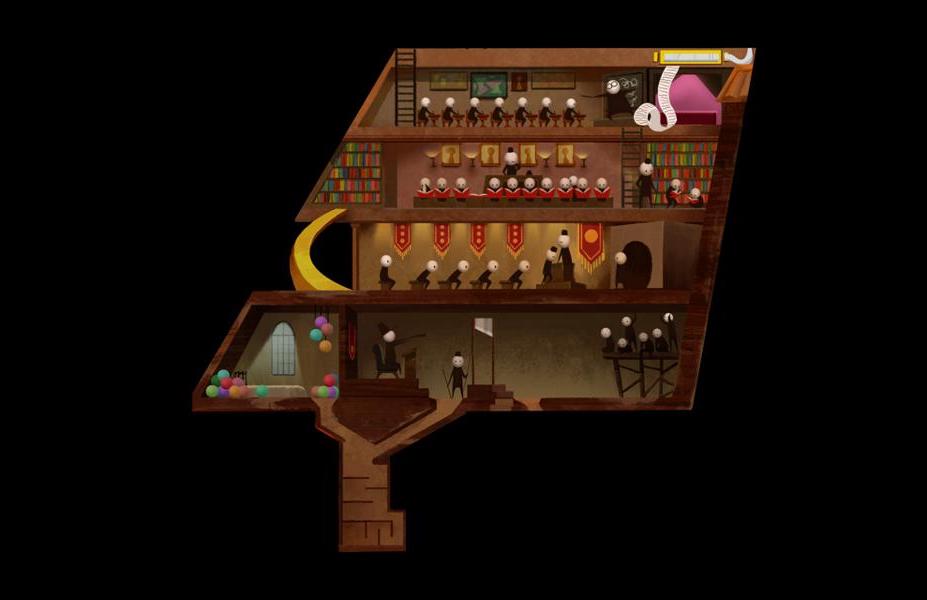
Toomas Beneath the Valley of the Wild Wolves — Chintis Lundgren (Estonia/Croatia/France)
This prequel of sorts to Lundgren’s award-winning and widely popular Manivald (2017) shows us how Toomas the Wolf was forced to become a sexual “handyman” to make ends meet. Loaded with campy dialogue, and characters and visuals that seem right out of a Russ Meyer B-movie, Toomas is a cheeky, kinky, and giggly sensory feast.
Symbiosis — Nadja Andrasev (Hungary/France)
Led by the strong voices of artists like Réka Bucsi (Solar Walk), Luca Tóth (Mr. Mare), and Nadja Andrasev (The Noise of Licking), Hungarian animation has been red hot of late. These graduates of Budapest’s Moholy-Nagy University of Art and Design are behind visually and conceptually striking films which explore the often-unseen oddities and quirks of human behavior.
Andrasev’s latest short film, Symbiosis, is no different. A combination of melodrama, mystery, and identity crisis, this very chill and meditative work follows a woman who discovers that her husband is screwing many other women. She follows her husband around, collecting souvenirs from the mistresses. Soon, she starts to admire and envy the other women.
Like Hitchcock’s Vertigo or Lynch’s Blue Velvet, Symbiosis lures us into an initially innocuous investigation in which the “victim” eventually turns into an obsessive (albeit harmless) stalker of sorts. Combining collage, pixilation, and 2d animation, Symbiosis is an uncomfortable portrait of the limits, lies, and complexities of human relationships.
Kids — Michael Frei (Switzerland)
In the long-awaited follow up to his beloved Plug & Play, Frei returns to a simple setting, this time exploring the power and stupidity of the masses. In this minimalist black-and-white work, which is also available as an interactive app, a bunch of faceless people race around, making decisions based not on logic so much as the seemingly random directions of different members of group.
It’s complete nonsense, of course. Something like that would never happen in the real world.
Homeless Home — Alberto Vázquez (France/Spain)
In this sort of mash-up of Isle of Misfit goth toys, Dante, and Doré, a man returns home after deserting a vicious war. Once home, he finds a dilapidated land littered with emotionally crippled people and assorted misfit addicts all struggling to stay afloat in a river of past pains. Along the way, Vázquez touches upon war, jealousy, mental illness, and generational conflict, creating a potent and dour portent of the seemingly inescapable sway of our roots.
4 North A — Howie Shia, Jordan Canning (Canada)
A woman sits alone in a hospital room with her dying father amid the anonymous mechanical hospital sounds and occasional distant cries of strangers. As she struggles with her emotions, she drifts through a series of bittersweet childhood memories of her father.
Featuring an eerily subdued soundtrack and a striking design that rotates between the pale environment of the hospital and the vivid, painterly landscapes of the past, 4 North A is a heart-wrenching depiction of grief and loss. Yet it’s also a tender celebration of the fleeting joys of life and love, and a timely and timeless reminder of the importance of embracing the moment, because we don’t get to choose our farewells.

Purpleboy — Alexandre Siqueira (Portugal/France/Belgium)
Oscar sprouts from a family garden. Raised by a wolf father and hen mother, he is immediately labeled a girl. Problem is, he feels that he’s a boy.
Purpleboy is dominated by purplish hues, and a striking character design, tone, and rhythm that occasionally bring to mind the work of Igor Kovalyov. While transgender struggles are its principle theme, the film also touches upon the complexities of gender stereotypes through the mother and father figures. And really, it’s a work with a message that everyone can relate to: struggling to be yourself in a world that fears change.
Sh_t Happens — Michaela Mihalyi, Dávid Štumpf (Czech Republic/Slovakia/France)
In an apartment building occupied by an above-average amount of assholes, there live a burned-out building custodian, his sexually unsatisfied wife, and a grieving, drunk deer. Their mutual miseries bring them together, with rather surprising results.
Beautifully paced and designed to match the madness of the people and space, Sh_t Happens is a a refreshingly delirious, vibrant, and bitterly funny take on love, community, and the importance of learning to roll with the unexpected balls of shit that life sometimes serves us.
Image at top, left to right: “Beyond Noh,” “Kids,” “Purpleboy.”


